 he word kraken conjures up visions of gigantic, tentacled, and deadly sea monsters, but it's an image born more of legend than reality. The oceans, however, do remain one of the last sources of profound mystery on earth, and they have been slow to give up the secrets of the creatures that sailors have mythologized and demonized for thousands of years.
he word kraken conjures up visions of gigantic, tentacled, and deadly sea monsters, but it's an image born more of legend than reality. The oceans, however, do remain one of the last sources of profound mystery on earth, and they have been slow to give up the secrets of the creatures that sailors have mythologized and demonized for thousands of years.
In Kraken, author Wendy Williams reveals the truths behind the squid, one of the most charismatic, enigmatic, and curious inhabitants of the sea, unfurling a wild narrative ride through the world of squid science and adventure. In addition to squid, both giant and otherwise, Kraken examines other equally enthralling cephalopods, including the octopus and the cuttlefish.
Along the way, Williams examines
the riddle of just what constitutes intelligence via the octopus, an animal whose brain is wrapped around its throat;
the use of kaleidoscopic skin cells that allow cephalopods to instantly assume a range of colors, from neutrals to neon, for camouflage or communication;
the ways that squid have greatly helped scientists understand the inner workings of the human brain, despite their seemingly alien biology;
the squid's ability to survive the five major mass extinctions over the past half billion years.
Accessible and entertaining, Kraken is the first substantial volume on the subject of squid in more than a decade, offering up the stories of the scientists who pursue these extraordinary creatures as well as the latest research and information about these fascinating and mysterious animals.
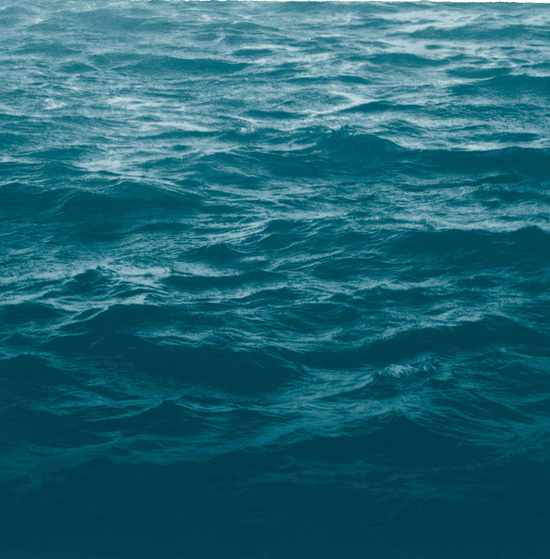
KRAKEN
ABRAMS IMAGE
NEW YORK

For
BELLA JEAN THOMAS,
who was fed by the ocean as a child,
and who loved the ocean
more than
anyone else I know
In our hearts, we hope we never discover everything.
E. O. WILSON
CONTENTS
INTRODUCTION
FROM VAMPIRE TO WALLFLOWER
All animals are the same but different.
NEIL SHUBIN, PALEONTOLOGIST
 n the 1930s popular author and naturalist William Beebe cobbled together the worlds first real-life deep-sea expedition with the help of fellow explorer Otis Barton. The teams exploration vehicle looked nothing like Jules Vernes sleek Nautilus. Small and round and crudely engineered by modern standards, the vessel was in diameter less than the height of a man, with three-inch-thick observation portholes and a bolted-shut door that imprisoned the men inside. The steel globe leaked, and to circulate oxygen internally, the men waved palm-leaf hand fans. Without an engine, Beebes bathysphere dangled helplessly from the topside support ship like a ball of yarn suspended from knitting needles.
n the 1930s popular author and naturalist William Beebe cobbled together the worlds first real-life deep-sea expedition with the help of fellow explorer Otis Barton. The teams exploration vehicle looked nothing like Jules Vernes sleek Nautilus. Small and round and crudely engineered by modern standards, the vessel was in diameter less than the height of a man, with three-inch-thick observation portholes and a bolted-shut door that imprisoned the men inside. The steel globe leaked, and to circulate oxygen internally, the men waved palm-leaf hand fans. Without an engine, Beebes bathysphere dangled helplessly from the topside support ship like a ball of yarn suspended from knitting needles.
Clumsy and dangerous, it nevertheless did the job. Over successive dives, Beebe and Barton sank deeper and deeper, descending eventually 3,000 feet into a miraculous, twinkling, watery universe never before seen by anyone. To Beebe, the eerie life-forms pulsating with energy and light were ethereal. One deep-sea animal looked to him like spun glass, another, like lilies of the valley. On one dive Beebe narrated his descent to an ardent North American and European radio audience. Listeners hung on every word, as avidly as they would decades later when American astronauts walked on the moon.
William Beebe felt awe for most of earths species, but for squid and octopuses he often expressed revulsion rather than reverence. He described a small Galpagos octopus as possessing a bulging mass of head and body with a horrible absence of all other bodily parts which such an eyed creature should have,nothing more than eight horrid, cup-covered, snaky tentacles, reaching out in front. The octopuss tentacles seemed to wave at him as if in some sort of infernal adieu.
His description of the vampire squid was graphically lurid: a very small but terrible octopus, black as night with ivory white jaws and blood red eyes, with sinister arms and webbing between the arms like a living umbrella.
Let us try to forgive Beebe his prejudices. After all, his emotional responses reflected the spirit of the age. Long before Beebes time another scientistwho apparently thought of this particular species as some kind of monstrous, diabolic chimerahad already named the animal: Vampyroteuthis infernalis, the Vampire Squid from Hell.
Its not hard to see why these men, denied the benefit of our modern scientific tools, found this particular little squid so repulsive. Half octopus and half squid (it may be an evolutionary stepping-stone between the two closely related groups), the foot-long vampire is semitranslucent with a jellyfish-like body texture. It has eight arms like an octopus, but it also has two bizarre antennae-like appendages that sometimes float in the water like cast-off fishing line. Probably evolved from feeding tentacles, these strange extremities seem to detect prey. Vampyroteuthiss usually blue eyes, the largest in the animal kingdom in proportion to body size, are capable of suddenly turning a devilish red, resembling the blazing coals of a Hadean fire. Hence, its hellish image.
A vampire squid

Today we know that Vampyroteuthis was misunderstood. The vampire squid from hell actually lives a rather humble, mostly slow-motion existence thousands of feet below the sea surface, often floating peacefully in the water column. It may not do much of anything most of the time.
Tiny and not particularly powerful, it must sometimes even resort to self-mutilation as a defense. When threatened, little Vampyroteuthis bites off one of its eight arm tips, which are decorated with bioluminescent blue lights. As the severed arm floats away, its blue lights glow, luring the enemy in the wrong direction.
Recent undersea videos show us a vampire thats more like a wallflower or a shrinking violet than a demon from hell. Rather than fight, the beleaguered squid sometimes wraps itself up in its own arms so that it looks kind of like a deep-sea tumbleweed. It may cavort and tumble in the water until the confused predator gives up. If that doesnt work, the squid might distract its enemy by ejecting clouds of ink filled with glowing particles. Undersea videos show an animal thats often beautiful to watch. Were we to name this species today, wed likely give it a kinder, friendlier name: maybe the wallflower squid, or the tumbleweed squid.
The more we get to know about the weird beings that live in the ocean, the less we fear them. Theres very cool stuff in the deep sea, and some of that stuff, while worth knowing about in its own right, has also helped us live better lives. Thats what Kraken is about. Its about how science and scientists work. Its about how we have learned that we are, more than Charles Darwin knew, truly kin to and beholden to all the other creatures of the earth. Kraken is the story of how the most serendipitous discoveries from the most unlikely creatures have revealed these basic connections, and about how field research, lab research, and ideas generated through scientific teamwork have not only provided insights into human biology but also created medical breakthroughs that have improved our lives. Over the past seven decades, Beebes bathysphere has morphed into a myriad of manned and unmanned submersibles that have taken us all, as voyeurs if not as actual voyagers, into marvelous deep-sea universes. During those same years, weve also made remarkable journeys in genetic research and basic biology, aided, in part, by squid.
Next page







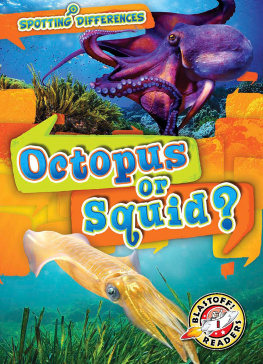
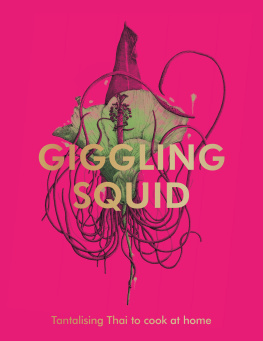
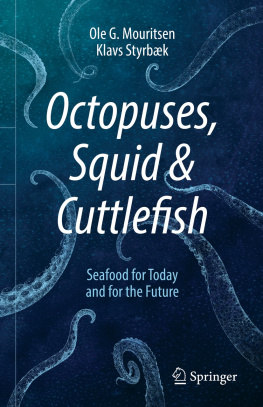
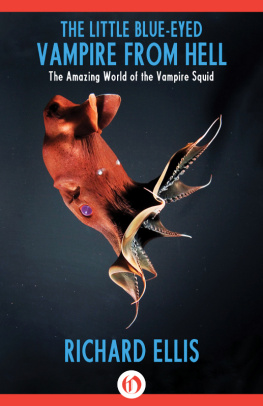
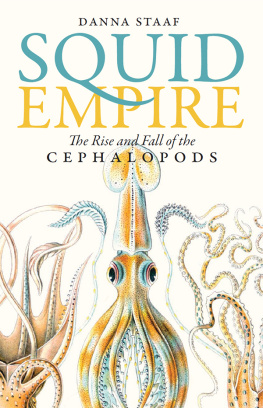
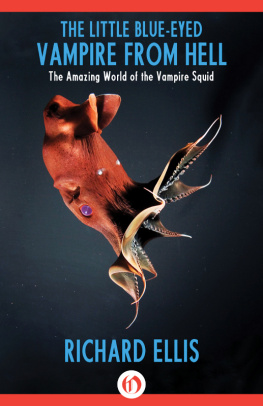
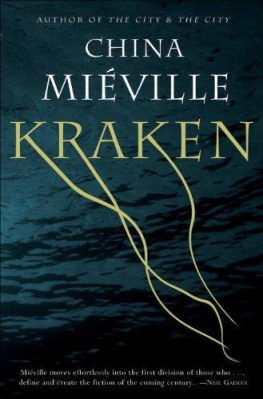
 he word kraken conjures up visions of gigantic, tentacled, and deadly sea monsters, but it's an image born more of legend than reality. The oceans, however, do remain one of the last sources of profound mystery on earth, and they have been slow to give up the secrets of the creatures that sailors have mythologized and demonized for thousands of years.
he word kraken conjures up visions of gigantic, tentacled, and deadly sea monsters, but it's an image born more of legend than reality. The oceans, however, do remain one of the last sources of profound mystery on earth, and they have been slow to give up the secrets of the creatures that sailors have mythologized and demonized for thousands of years.

 n the 1930s popular author and naturalist William Beebe cobbled together the worlds first real-life deep-sea expedition with the help of fellow explorer Otis Barton. The teams exploration vehicle looked nothing like Jules Vernes sleek Nautilus. Small and round and crudely engineered by modern standards, the vessel was in diameter less than the height of a man, with three-inch-thick observation portholes and a bolted-shut door that imprisoned the men inside. The steel globe leaked, and to circulate oxygen internally, the men waved palm-leaf hand fans. Without an engine, Beebes bathysphere dangled helplessly from the topside support ship like a ball of yarn suspended from knitting needles.
n the 1930s popular author and naturalist William Beebe cobbled together the worlds first real-life deep-sea expedition with the help of fellow explorer Otis Barton. The teams exploration vehicle looked nothing like Jules Vernes sleek Nautilus. Small and round and crudely engineered by modern standards, the vessel was in diameter less than the height of a man, with three-inch-thick observation portholes and a bolted-shut door that imprisoned the men inside. The steel globe leaked, and to circulate oxygen internally, the men waved palm-leaf hand fans. Without an engine, Beebes bathysphere dangled helplessly from the topside support ship like a ball of yarn suspended from knitting needles.